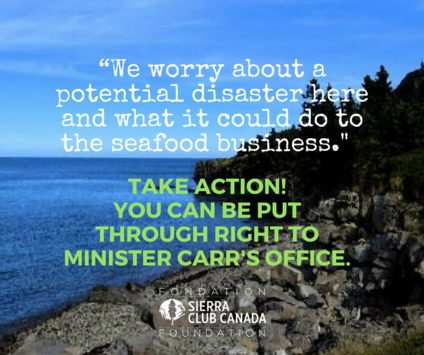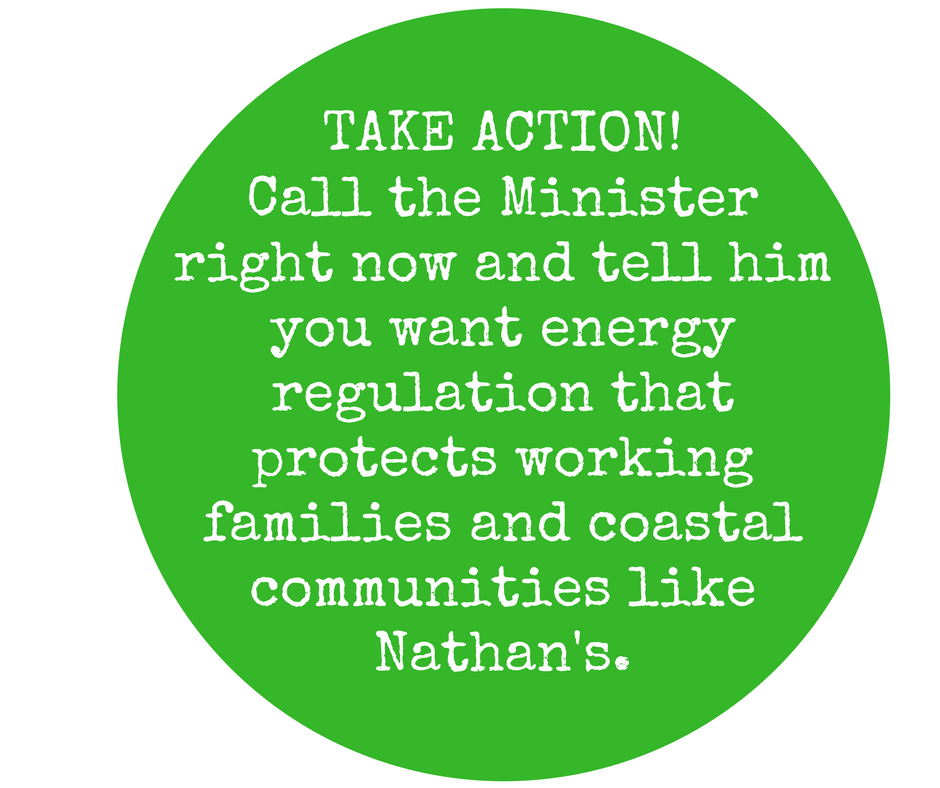
When the Deepwater Horizon offshore drilling rig sank in 2010, it spewed raw oil into the Gulf of Mexico for months, wreaking untold damage on marine life. The spill was the largest ever in U.S. waters, and the full effects are still unknown.
The thought of a disaster like that one happening off Nova Scotia shores keeps Nathan Blades awake at night. With good reason: Blades is the general manager of Sable Fish Packers, on Cape Sable Island in southwest Nova Scotia – a seafood packing, processing and exporting company his grandfather founded in 1946 that today specializes in herring, hagfish and lobster.
“We worry about a potential disaster here and what it could do to the seafood business, which is a huge contributor to the Canadian and Nova Scotia economy [to the tune of $1.8 billion annually],” he says. “Because of the ocean currents off Nova Scotia, and the Bay of Fundy tides, an oil spill in some areas currently under exploration would be pushed up into the Bay of Fundy, washed onto the shores and then deposited back out into the Gulf of Maine.”
So Blades was initially encouraged about the newly tabled Bill C-69, which aims to restore the environmental assessment process gutted by the Harper government in 2012. This month, the federal government is accepting feedback from Canadians before moving the bill forward. However, one piece of Bill C-69 raises alarm bells for Blades and his colleagues: instead of improving impact assessments, draft legislation gives industry-dominated offshore petroleum boards even greater powers than they do now, as they will be able to sit on review panels assessing projects for major offshore oil and gas projects.instead of improving impact assessments, draft legislation gives industry-dominated offshore petroleum boards even greater powers than they do now, as they will be able to sit on review panels assessing projects for major offshore oil and gas projects.
 That’s a conflict of interest, says Blades. “My experience with the offshore petroleum boards is that they haven’t done a very good job of fulfilling their mandate to protect the environment,” he says.
That’s a conflict of interest, says Blades. “My experience with the offshore petroleum boards is that they haven’t done a very good job of fulfilling their mandate to protect the environment,” he says.
For instance: the Nova Scotia board has ignored requests from the seafood industry for measures that would disallow oil-and-gas exploration in or near fragile seafood-fish nursing grounds such as the Browns, LaHave, Roseway and Georges Banks. One area being considered for exploration encompasses Lobster Fishing Area 40, a lobster nursery and designated Marine Protected Area off East Dover where harvesting is prohibited. The board has also declined to ban the use of chemical dispersants on oil spills (which the seafood industry believes poses a significant risk to marine species), and neglected to require rigs to keep capping stacks – equipment that can stem gushing wellheads in a disaster – nearby and ready to deploy in case of a blowout.
“The Deepwater Horizon rig was a model for the industry. It was not supposed to fail. However, a series of human errors took place and it exploded and fell into the ocean, and there was oil spewing from an out-of-control wellhead for months,” says Blades. As a result of Deepwater, blowout-prevention technology has been improved. But Blades would rather see strong environmental regulations spur change, not disasters.
“An oil disaster in the Nova Scotia offshore has the potential to wipe our industry off the map. I want to see due diligence and a strong, prescriptive regulatory regime implemented up front so that we’ve done our best to prevent a disaster from occurring,” says Blades. “And if there is a disaster, we’ve given ourselves a chance to survive it as an industry.”
